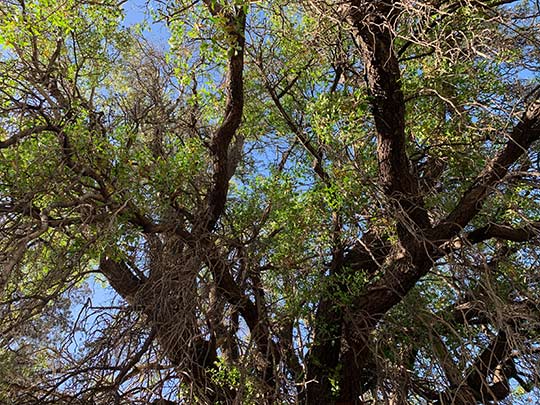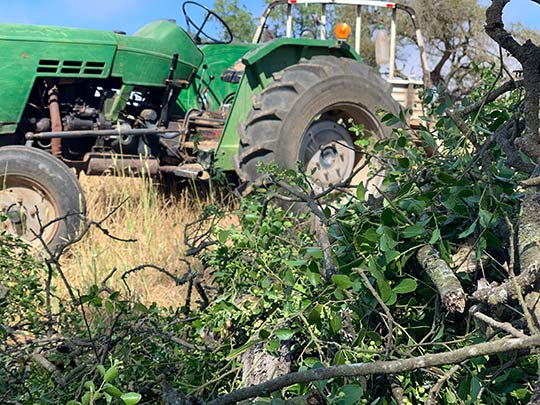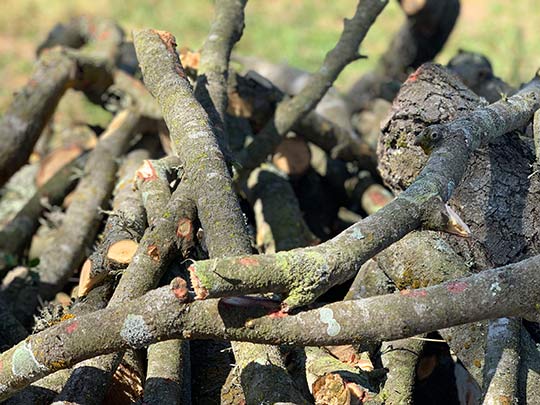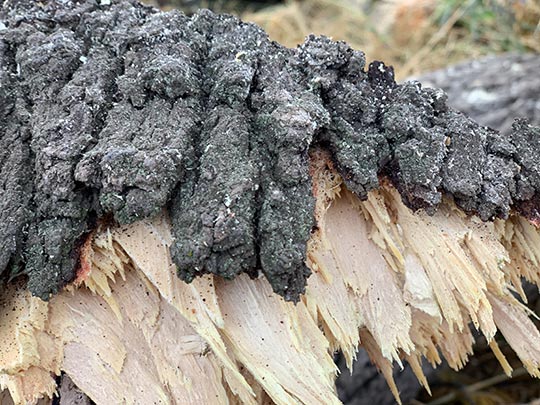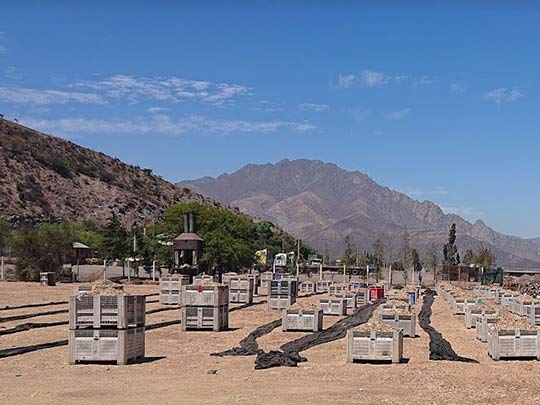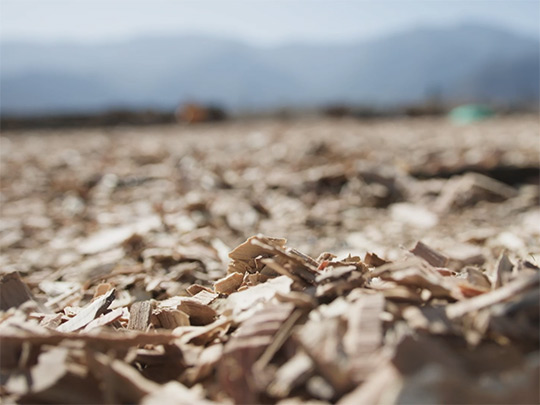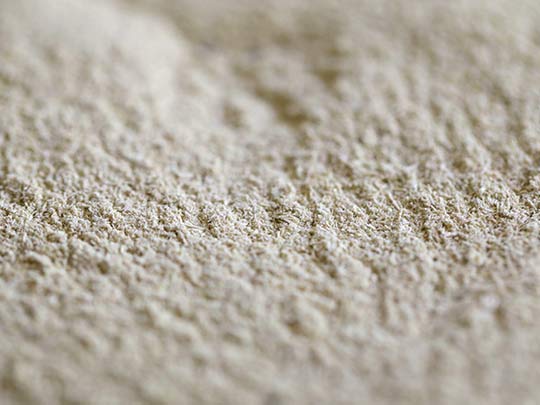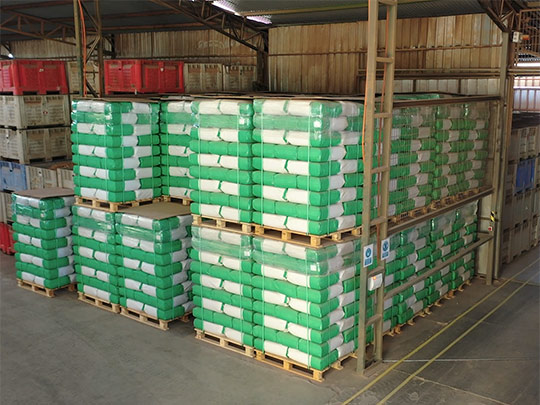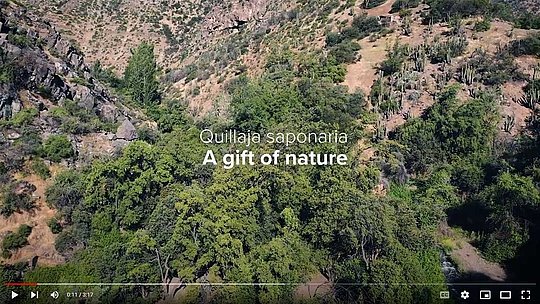Quillaja: more than just an ingredient for Delacon
Just like plants and animals, good partnerships need to be fostered. That´s why Michael Fischer, Delacon’s Global Business Operations and Supply Chain (BOSC) Director for Additives, and Klaus Pöllmann, BOSC Director Austria, set out on a journey. Their destination? Chile, South America, where Delacon co-owns a Quillaja production site, and the place where the more than 20 - meter high (1) and 100-year-old Quillaja trees are native.
Quillaja Saponaria
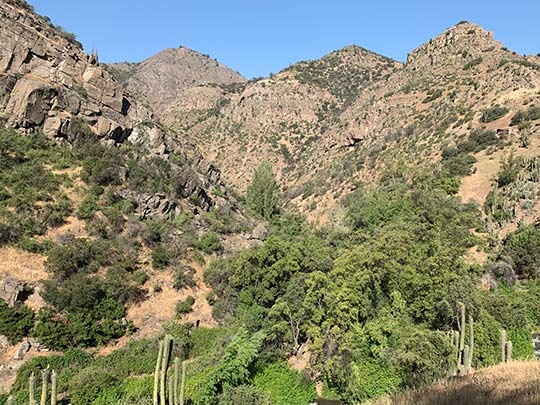
The power of the phytogenic universe is tremendous, but often natural resources are limited. This is the case with Quillaja trees. They only occur in large numbers in Chile and are difficult to cultivate. Therefore, the forestry process is strictly regulated to be sustainable. The Chilean government issues individual licenses to harvesters to ensure that only a certain number of trees will be cut down and processed. It is important to mention that only tree branches are usually cut, not the entire tree. Forestry management is controlled by the Chilean National Forest Corporation (CONAF). Harvesting zones (rotation system), season of harvesting, number of trees that can be used per year, and the minimum regrow period are predefined and monitored to preserve the native forest from destruction.
Strong partnership – strong quality
Since 2014, Delacon has co-owned a Quillaja saponaria production site in Chile called Fitotek. The strong partnership with Paulo Tamargo, CEO & co-owner of Fitotek, helps to ensure the consistent supply and quality of Quillaja saponins. At Fitotek, all processes are HACCP and GMP certified and are monitored by the quality and safety systems FAMI-QS and Delacon´s quality management systems.
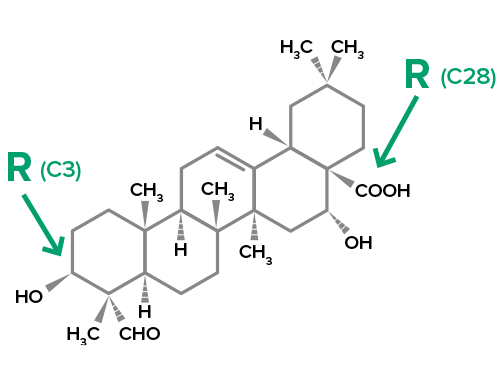
Why saponins in animal nutrition?
The reduction of environmental pollution is a target all over the world. Ammonia emissions arise from the agricultural sector through, for example, fertilizer usage and livestock production. Above a particular concentration, they may damage the environment and can lead to a decline in biodiversity. Ammonia emissions can also adversely impact both human and animal health. They must be reduced where they occur. In studies, saponins have been shown to reduce ammonia emissions in livestock2,3. That´s why phytogenic feed additives could be an important tool as a part of a strategy to minimize emissions.
Did you know?
Minimizing emissions in a natural way
Having the power to make an important contribution to animal nutrition and well-being, saponins are a valued ingredient in animal feed additives.
Our phytogenic solutions made from the Quillaja saponaria tree is 100% natural. We are proud to ensure a sustainable, consistent, and high quality ingredient sourced from the forests of Chile.
From tree to product
But what happens on the way from the Quillaja saponaria tree to the final, all-natural product?
After the branches are cut, they are dried. Only one-third of a tree may be used in a 5-year time period to ensure the tree survives. After the first drying, the parts of the branches harvested are processed into wood chips, the appearance of which is somewhat reminiscent of the bark mulch, which is common in landscaping. The wood chips are then ground, sieved, and sampled for quality.
Sustainability all around
It is not only in terms of responsible and controlled harvesting that sustainability plays a role in Quillaja saponaria processing. Great importance is given to energy-saving and renewable processes throughout the operation. For example, natural solar energy is used for the drying process, and leaves and harvest residues are used as compost components for biological fertilizers. Wood chips that cannot be further processed (e.g., soiled, not conforming) are very popular for the surface of paths in parks and gardens.
But that is not all. The flowers of the Quillaja saponaria tree attract bees. The valuable and very popular Quillaja honey can be found around the plantations. The bees attract more insects, which in the long term has beneficial effects on the fauna and its diversity.
Growing up sustainably
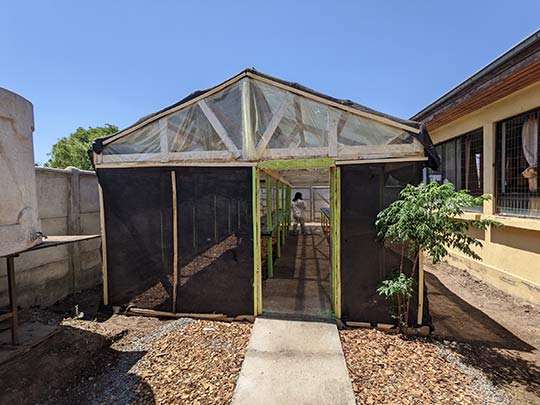
It is not only about environmental sustainability, but also sustainability education for the generations. Fitotek puts great emphasis on social projects, educating future generations on environmental and sustainable issues and raising their awareness on the importance of these global topics.
Just recently, Mr. Tamargo and his team were actively involved in a school project at the Liceo Rinconada de Silva, an institution located in the region, where nearly 60 girls and boys between the age of 4 to 17 are taught. As part of this project, which was fully funded by Fitotek, a greenhouse was built. In addition to the construction costs, the wood chips for the path to the greenhouse and the roof, which were made of recycled material from Fitotek's drying processes, were provided as well. The costs for the maintenance, for plants and for the training of the teachers and children, which was carried out by the Fundation Entre Pares, were also covered by Fitotek.
With the help of this greenhouse, the children will learn how to successfully handle seeds, grow plants, and harvest healthy food. Gaining this practical knowledge requires a high degree of teamwork.
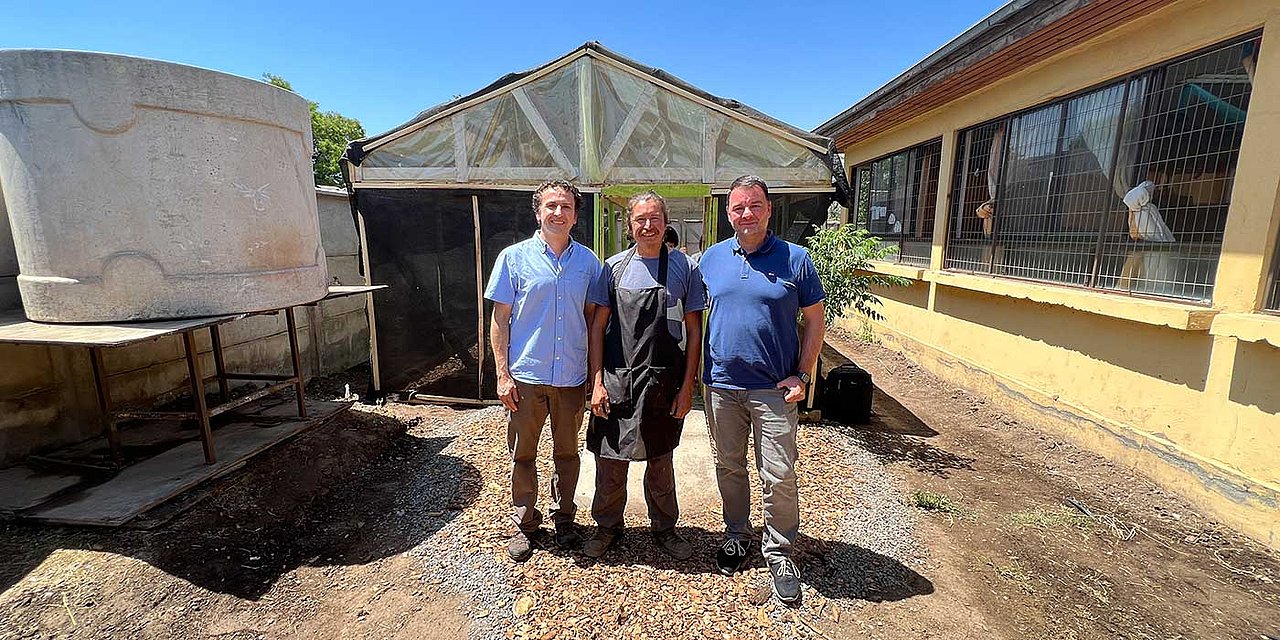
As you sow, so you will reap

With the help of this greenhouse, the children learn how to successfully handle seeds and get to know all facts about growing and harvesting healthy food. Gaining this practical knowledge simultaneously requires a high degree of teamwork and empathy of all involved. Sowing the seeds of today for the harvest of tomorrow - not only in case of a sustainable agriculture but also in view of reaping the success when working together.
Win win
Fitotek and Delacon are sowing the seeds of today for the harvest of tomorrow - not only in the case of a sustainable agriculture, but also with the success achieved when working together.
We are grateful for the cooperation and trust we enjoy with our partners at Fitotek. Together we are benefiting animal nutrition and promoting the long-term sustainable use of our natural resources.
If you are as interested in this topic as we are and would like to learn more, please watch our Quillaja video, where we dive further into the world of Quillaja saponaria, one of the many ways we help to feed the world.
References:
1) Delporte, Carla, Maité Rodríguez-Díaz, and Bruce K. Cassels. "Quillaja saponaria Molina." Medicinal and Aromatic Plants of South America Vol. 2: Argentina, Chile and Uruguay (2021): 461-47.
2) Pen, B., et al. "Effects of Yucca schidigera and Quillaja saponaria with or without β 1–4 galacto-oligosaccharides on ruminal fermentation, methane production and nitrogen utilization in sheep." Animal Feed Science and Technology 138.1 (2007): 75-88.
3) Makkar, H. P. S., E. M. Aregheore, and K. Becker. "Effect of saponins and plant extracts containing saponins on the recovery of ammonia during urea-ammoniation of wheat straw and fermentation kinetics of the treated straw." The Journal of Agricultural Science 132.3 (1999): 313-321.

Elisabeth Rohrer
After her study in agriculture sciences at the university of natural resources and life sciences in Vienna, Elisabeth joined the Delacon team in December 2013 as Technical Communications Manager - a position, she always exerted with pleasure. Since 2021, her task areas have been extended and thus, she is also supporting colleagues in writing offside the technical focus as Content Manager. Elisabeth describes herself as a great animal and nature lover and prefers to spend her free time high up in the mountains with her little family, away from the hustle and bustle.

